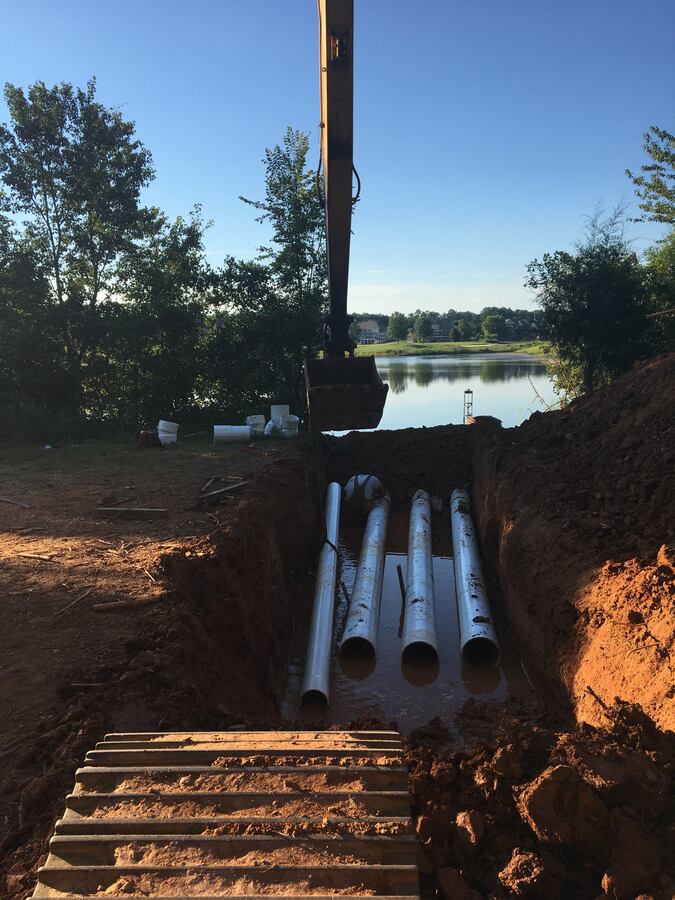
A serene lake, tranquil pond, or vital wetland are the jewels of our communities, but what happens when they start to lose their luster due to sediment buildup or other issues? Siphon installation is a cost-effective and environmentally friendly solution to your water woes. At Aquatic Restoration, we offer a wide selection of services including siphon installation and siphon replacement in Atlanta, Georgia, and other local areas. Read on to understand why siphon installation could be the answer you've been searching for.
A siphon is basically a pipe that uses atmospheric pressure to move water from a higher elevation to a lower one without the need for any mechanical power. It transports excess water or sediment to a different location. Not only is this a reliable solution for water management, but it's also surprisingly straightforward. Installation generally involves three parts, the intake pipe, the apex, and the outlet pipe.
Sediment buildup can be a real problem. Too much of it can lead to issues like poor water quality and loss of natural habitat for fish and plants. Over time, the water body may even become uninhabitable. Siphons help to effectively manage sediment and water levels, contributing to healthier aquatic ecosystems. Without proper management, it's not just the fish that suffer, local communities and businesses dependent on these water bodies also face adverse effects. The economic impact can include decreased property values and increased costs for water treatment.

You might be tempted to simply invest in mechanical dredging. However, siphons have some clear advantages. They're energy-efficient. There's a minimal carbon footprint since physics does all the work. It's a lot less disruptive to aquatic life as well. and the process is extremely cost-effective. Due to fewer moving parts, siphons also tend to have a longer lifespan and lower maintenance requirements. Lower operation costs mean you can redirect those funds to other important restoration projects.
Are you ready to invest in siphon installation? Then a bit of planning goes a long way. From site assessment to material choices and permit requirements, here are the steps required to make your installation go smoothly:
Are you facing problems with your lake or pond? So you want to avoid more intrusive methods like dredging? It's time to opt for a simpler, smarter, and more sustainable alternative. At Aquatic Restoration, we are ready to provide a long-term solution. Contact our office for more details or to schedule a consultation for your siphon installation or siphon replacement in Atlanta, Georgia, or a nearby neighborhood.
Recreational lakes are valuable community and private assets, offering opportunities for boating, fishing, swimming,…
Read MoreStormwater ponds form a part of modern stormwater management systems. As the name suggests, they…
Read MoreSediment buildup is one of the biggest threats to lakes and ponds. It not only…
Read MoreIf you own a pond or lake, you know that proactive maintenance is an…
Read More